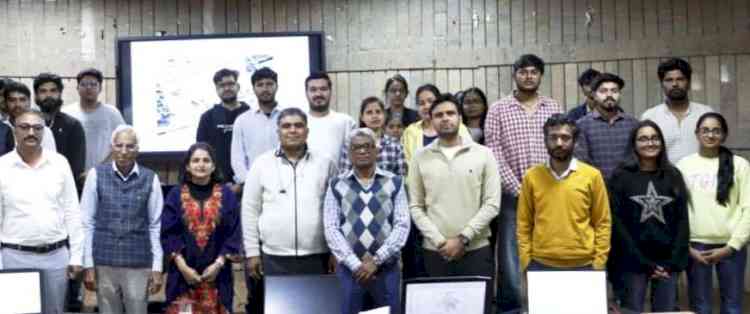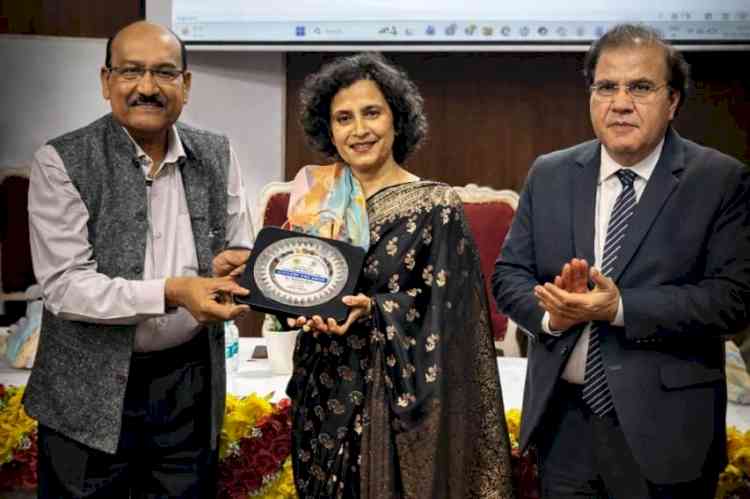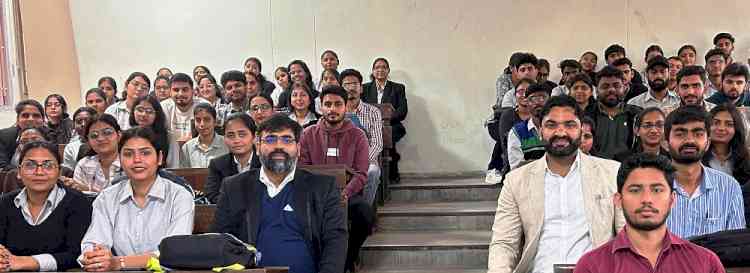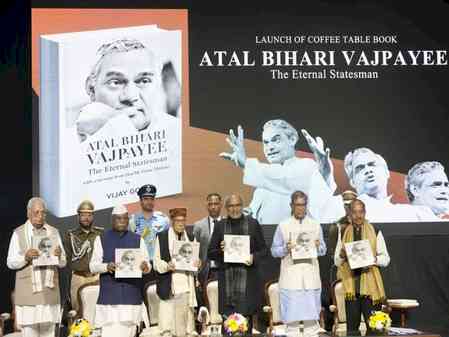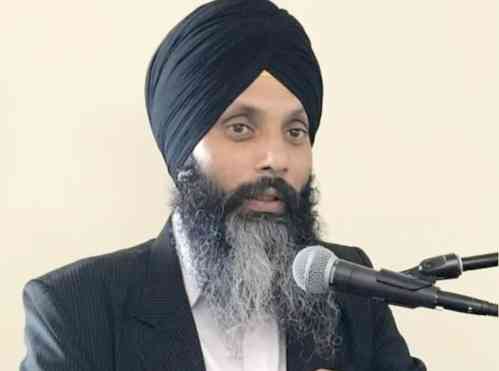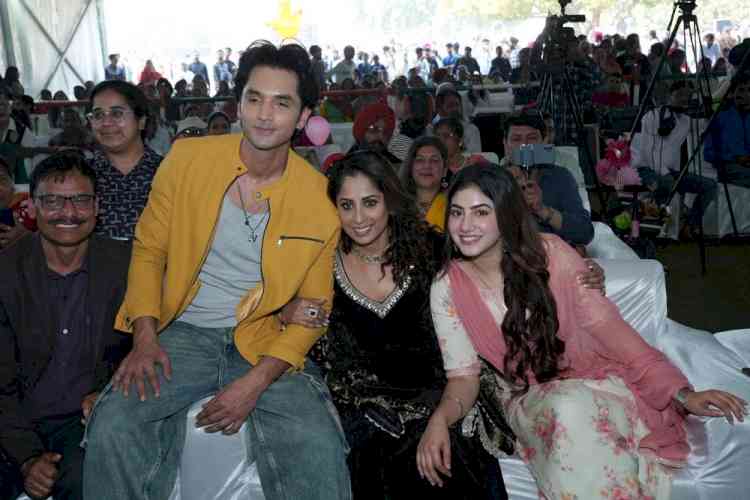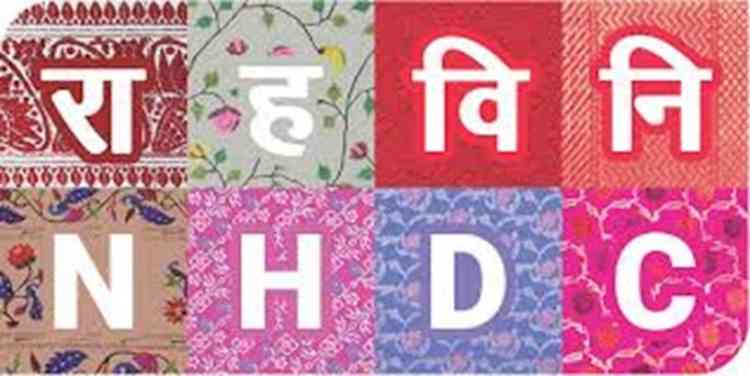Celebrating Self-Protection and Nation Building: Brahma Kumaris’ BK Anita Didi Inspires at Panjab University
The Centre for Human Rights & Duties, Panjab University, Chandigarh, in collaboration with multiple departments housed in the Emerging Areas Building, hosted a thought-provoking Special Lecture on the theme “My Life, My Nation – Celebrating the Festival of Self-Protection through the Pledge of Nasha Mukt Bharat.” The event was held at the Seminar Hall, Emerging Areas Building, Panjab University.
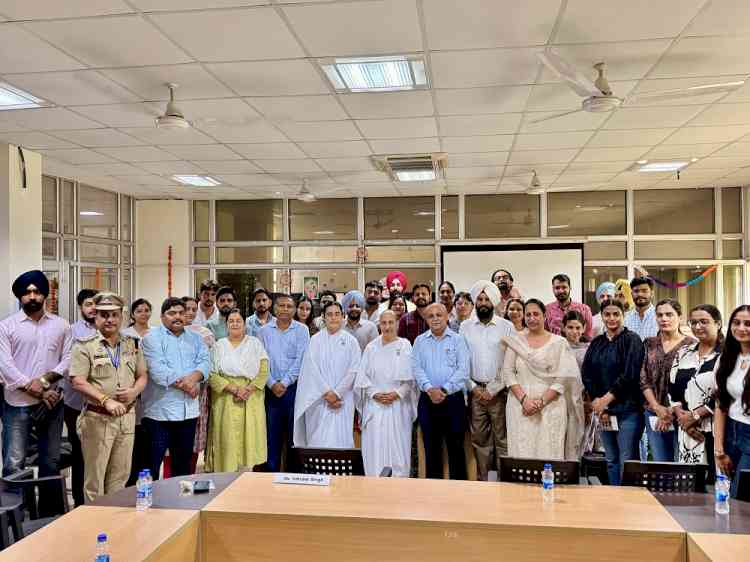
Chandigarh, 6 August 2025: The Centre for Human Rights & Duties, Panjab University, Chandigarh, in collaboration with multiple departments housed in the Emerging Areas Building, hosted a thought-provoking Special Lecture on the theme “My Life, My Nation – Celebrating the Festival of Self-Protection through the Pledge of Nasha Mukt Bharat.” The event was held at the Seminar Hall, Emerging Areas Building, Panjab University.
The keynote address was delivered by BK Anita Didi, Senior Rajyoga Teacher and Centre Incharge of Global Peace House, Chandigarh and Panchkula. A revered spiritual guide, BK Anita Didi has been associated with the Brahma Kumaris since 1979 and is a core faculty member of the Rajyoga Teacher Training Programme at Mount Abu. Known for her profound spiritual wisdom, motivational talks, and corporate trainings across India, she guided the audience on cultivating inner strength, emotional resilience, and self-discipline as forms of self-protection.
The event, uniquely timed with the upcoming festival of Raksha Bandhan, drew parallels between the traditional pledge of protection and the contemporary need for self-protection from harmful addictions. Emphasising the vision of a Nasha Mukt Bharat (Drug-Free India), the lecture inspired faculty, students, and staff to pledge to lead conscious, addiction-free lives as a patriotic and spiritual act.
BK Anita Didi’s message revolved around Rajyoga meditation, positive thinking, and the power of inner transformation as tools for national upliftment. “True self-protection is the ability to preserve one's mind, energy, and time for meaningful living,” she stated, encouraging youth to act as torchbearers of a new India grounded in values.
The event was graced by BK Preeti Didi, whose spiritual presence added warmth and grace to the occasion. The gathering witnessed the participation of students, faculty, and staff from various disciplines and departments.
The welcome address was delivered by Dr. Upneet Kaur Mangat, Chairperson, Centre for Human Rights & Duties, who eloquently highlighted the thematic relevance of the event in today’s times. She shared that the objective of the event was more than an academic exercise—it is a soul-stirring reminder that self-protection is the truest form of patriotism. The call for a Nasha Mukt Bharat—a drug-free India—is not just a campaign; it is a transformative movement, especially when understood as a celebration of inner strength and moral resolve.
Prof. Anil Monga, Coordinator NEP Cell delved that the theme of Nasha Mukt Bharat—a drug-free India—echoes our collective aspiration for a nation where youth are not trapped in cycles of addiction but are empowered through awareness, values, and resilience.
Prof. Namita Gupta, DSW (W) appreciated that the timing of this event is especially meaningful. As we approach Raksha Bandhan—a festival that celebrates the sacred bond of protection—we gather to reflect on the deeper meaning of self-protection, not just in the physical sense, but as a spiritual and moral responsibility.
This spiritual and educational collaboration was made possible through the joint efforts of the departments of Social Work, Police Administration, UIFT, Lifelong Learning and Extension, Women’s Studies and Development, NEP Cell, Dean Student Welfare (Women), Youth Welfare and University Security Office.
The message was clear and powerful—self-protection is not just a personal duty, but a national mission. The programme concluded with a collective resolve to build a society free from addiction and full of awareness, responsibility, and peace, thus paving way.



 City Air News
City Air News 
